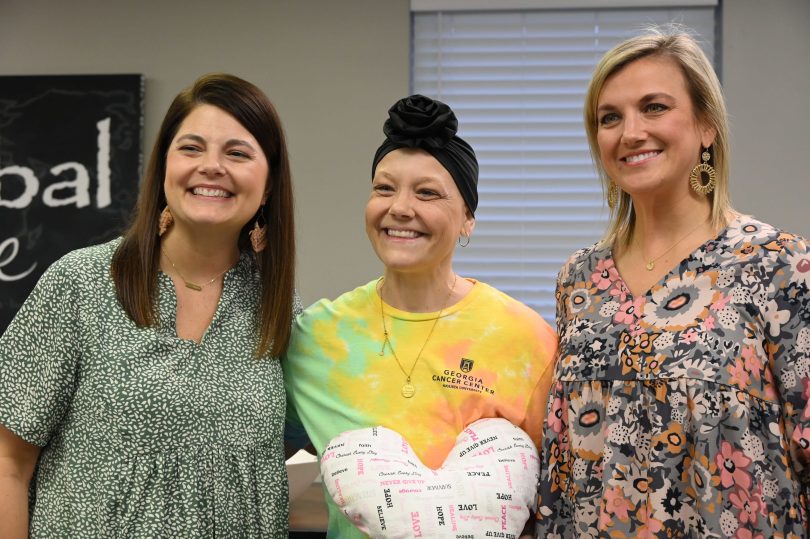So you’re where you want to be in your career, you’re financially stable and you’ve traveled to (most of) your dream destinations. Now, you’re ready. Let’s get pregnant!
At first, you’re trying, but not really. The first few months it doesn’t happen, you shrug and laugh a little. “Just gotta try a little more!” A few more months pass by, and it starts getting a little more regimented. You begin Googling ovulation cycles and “best time to get pregnant.” You become that cliché so often seen on TV sitcoms: “C’mon, honey, let’s go! It’s time.”
Several more months later. You’re glad—so glad—that you didn’t tell anyone that you were trying. When well-meaning friends or family occasionally ask, laughingly, “So, when are you guys finally going to pop one out?”, you pretend you’re too busy enjoying life as a couple—“What? We’ve got plenty of time!”—but inside, you’re crying. It’s been a year: Why isn’t this happening? When friends joyfully announce their pregnancies, you’re happy for them—you really are—but a small voice inside of you just keeps repeating, “It’s not fair.”
Maybe your husband suggests getting checked out. Or maybe you go back to Google yourself and start looking. But something inside you just keeps telling you, “You can do it yourself. You don’t need help. You can do it, you just have to keep trying.”
More often than it should happen, couples find themselves in this scenario. A year, maybe two and sometimes longer passes before a couple is willing to admit that something that “is supposed to happen naturally” just isn’t happening for them.
It’s not uncommon for couples experiencing infertility to seek help years later, said Dr. Larisa Gavrilova-Jordan, an infertility specialist at Augusta University Reproductive Medicine and Infertility Associates. Especially with more couples waiting until the woman is in her 30s before trying to start a family, difficulty in achieving pregnancy is becoming more common.
“It’s not a stigma as most people these days are familiar with infertility services,” Gavrilova-Jordan said. “It’s more a matter of denial. Unlike conditions like cancer, where most people want to have aggressive treatment as soon as diagnosis is made, infertility commonly is viewed as a condition that might improve or resolve on its own.”
However, for most women, she says, struggling to have a baby negatively affects the quality of life, impacts the relationship with her partner, decreases her professional productivity and commonly becomes a cause for depression.
“Seeking help early for the inability to conceive should be embraced as part of modern medicine,” Gavrilova-Jordan said. “With today’s technology and an evidence-based approach to infertility evaluation and treatment, most couples could overcome infertility in six months or sooner.”
Don’t wait
So what does it take to overcome our natural inclination to denial, especially when it comes to infertility?
Education comes first. Go back to Google and read up on the challenges of becoming pregnant. Review the infertility resources available in your area so that you’re better prepared once you’re ready to take that step.
Next, be honest with yourself. If you’ve been trying to conceive without success and it’s starting to negatively affect you, it’s time to go ahead and make that call. “Although admitting that you have an infertility problem or need help creates anxiety on its own, there’s also the relief that comes from knowing that you’re not struggling on our own and that infertility experts are available to help you achieve your dream of motherhood,” Gavrilova-Jordan said.
Finally, take advantage of the access to infertility care that is readily available here in the United States. For example, said Gavrilova-Jordan, under her leadership, Augusta University Health Reproductive Medicine and Infertility Associates is a regional referral center, treating patients across most of Georgia, from Vidalia to Macon to Athens, both in person and through telemedicine services. “We encourage patients to reach out for help earlier and learn about the modern methods now available to treat infertility to shorten time to conception,” Gavrilova-Jordan said.
After all, a chance of a successful pregnancy is a female age-related phenomenon. For women struggling with conception in their 30s—and in particular for those older than 35—the new norm should be to contact a fertility specialist for optimal family planning.
1 in 6 couples struggle with infertility. Where there is help, there’s hope.
Learn more about the Augusta University Reproductive Medicine and Infertility Clinic or talk to a reproductive specialist about your family planning at augustahealth.org/infertility or by calling 706-722-4434.





